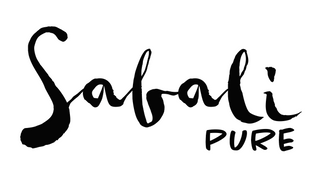
Pure Hygiene: The Introduction of Eco-Friendly Deodorants
In search of deodorant without harmful ingredients? Do you want to maintain good skin and a healthy body with a natural and organic solution? If this is the case, we have the ideal answer for you!
Deodorants created with natural ingredients are hypoallergenic and won't irritate even the most delicate skin. Even fragrances, like lavender and vanilla, are customizable. You've found the right article if you're on the hunt for an aluminum- and paraben-free, all-natural deodorant that won't harm the environment.
First, What Is a Deodorant, and What Is It Used For?
Deodorants are products that are used to lessen body odor. Depending on the situation, it either inhibits bacterial growth or covers up odors with other fragrances.
Why Should You Use Organic Deodorants?
There are a number of potential health benefits to using organic deodorants and antiperspirants instead of conventional options.
There are no potentially irritating ingredients in them, such as aluminum, parabens, or synthetic perfumes.
Coconut oil and organic essential oils have antibacterial qualities that keep our skin from collecting microorganisms that produce unpleasant odors. The refreshing fragrance will last throughout the day.
Since natural deodorants don't contain any harmful chemicals, they're a great option for pregnant women and young children.
Basically, What Is an Organic Deodorant?
In order to combat odor-causing germs, organic deodorants use antibacterial ingredients found in nature. Diatomaceous Earth, coconut oil, Organic Illipe butter, and Candelilla Wax are just a few examples. Due to the antibacterial qualities of various plants, some people choose to mix together their own homemade concoctions utilizing essential oils, which can also be quite useful.
Aluminum and Paraben Toxicity in Normal Antiperspirants and Deodorants
Research has connected aluminum exposure to an increased risk of breast cancer. Men are also affected by aluminum, hormonal instability leading to low testosterone levels can cause Alzheimer's brain damage, bone disorders like osteoporosis, and even infertility in men.
Antiperspirants commonly found on store shelves contain aluminum, which works by closing pores and preventing sweating. When our body does not sweat its natural detox is disrupted, which requires the body to find alternate routes to remove toxins. This often leads to imbalance and disease. Excessive ingestion of aluminum, which mimics the effects of estrogen in the body, has been linked to hormonal disruption in both men and women.
Parabens share the same problem; prolonged exposure to them might lead to cancer. Given that parabens mimic estrogen once inside the body, it stands to reason that they could contribute to the progression of breast cancer. Whether or not your deodorant contains aluminum, it may contain dangerous substances like propylene glycol (a chemical derived from petroleum) and artificial perfumes, which may irritate sensitive skin.
Organic deodorants utilize only safe, natural components that won't aggravate your skin. You can feel better about using an organic deodorant on your skin and body.
There Are No Toxic Components In It
In general, organic substances are safest for those with sensitive skin. Since they're not subjected to industrial processing, organic goods are superior to their processed counterparts. They don't employ the same plastics-based production methods that make synthetics, which means they don't dry out and irritate our skin as synthetics do.
Conclusion
Organic deodorants are becoming increasingly popular due to their natural ingredients, lack of harsh chemicals, and their commitment to sustainability. They can provide long-lasting protection against sweat and odor while being gentle and safe on the skin. Many brands are also committed to reducing their environmental footprint in terms of packaging and ingredients.
Indeed, organic deodorants are an easy and effective way to make a small change that can greatly impact the environment.
If you are looking for a great source of organic deodorants, look no further than our high-quality selections here at Sabali Pure. We are an Organic Body Care company that focuses on whole ingredient formulation, 100% plant-based, no synthetics, Fairtrade, and eco-friendly packaging. Feel free to click our ‘Shop All Products’ category above for more of our eco-friendly items and their prices.





























